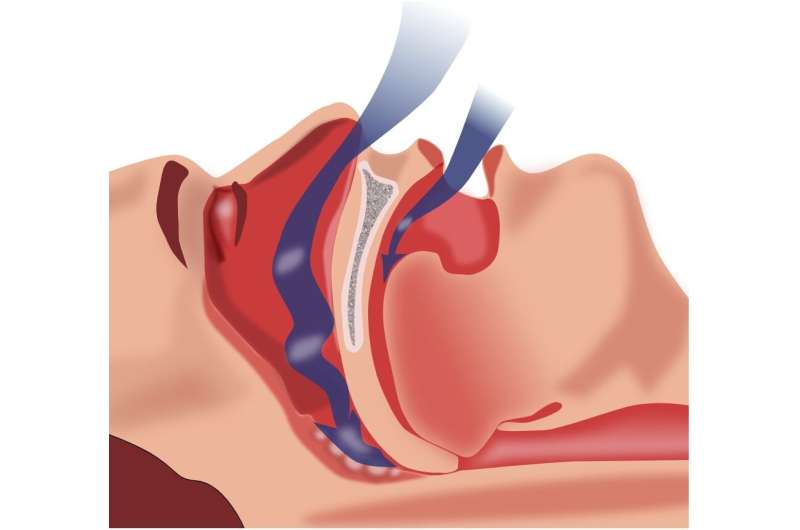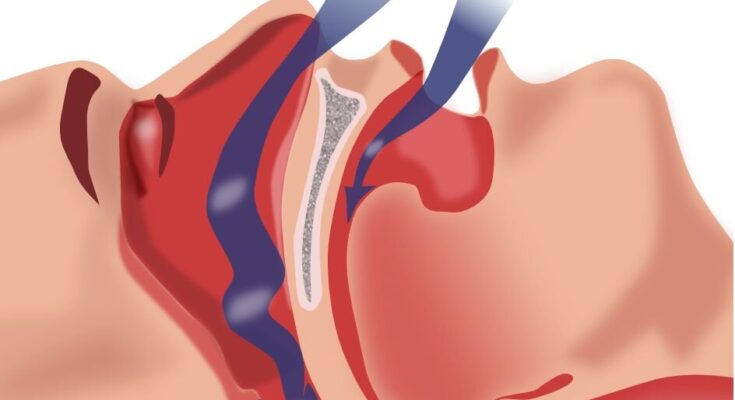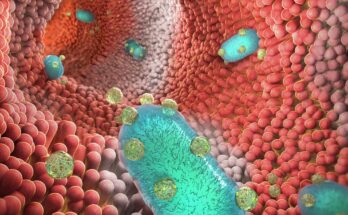
Targeting a condition suffered by nearly a billion people worldwide, a new study from Flinders University has shown a drug previously used to treat depression can reduce obstructive sleep apnea (OSA) severity.
While not yet identifying a cure, the authors say the study opens up further avenues for the development of future drug treatments targeted at the huge number of people unable to tolerate current sleep apnea therapies, such as continuous positive airway pressure (CPAP) machines.
“Obstructive sleep apnea can be a debilitating disease, causing poor quality sleep at night and sleepiness during the day,” says study lead author Dr. Thomas Altree from FHRMI: Sleep Health (formerly the Adelaide Institute for Sleep Health).
“It affects millions of Australians and causes major impacts on health and productivity.”
“Recent research found a combination of the medicines reboxetine and oxybutynin, which were both previously used for unrelated conditions, could be an effective treatment for obstructive sleep apnea but can cause side effects.”
“We wanted to see if reboxetine on its own could be effective and assess exactly how it changes breathing during sleep.”
The team ran a double blind, placebo controlled, randomized, multicenter cross-over trial with collaborators at the Woolcock Institute in Sydney (following a gold standard for drug trials) with 16 people who had OSA. They tested single doses of reboxetine compared to a combination of reboxetine and oxybutynin or placebo.
“Our results showed that reboxetine on its own can reduce sleep apnea severity,” says Dr. Altree.
“We found the drug reduced the number of sleep apnea events per hour and also improved oxygen levels, while the addition of oxybutynin didn’t cause additional improvements.”
“We also used a state-of-the-art computing method to determine how the drug stabilizes breathing during sleep, which allows us to identify which patients might benefit most from the drug in the future.”
The team’s findings present the first evidence that reboxetine alone reduces OSA severity, and provides further insight into the role of norepinephrine reuptake inhibitors on upper airway stability during sleep.
“The current gold-standard treatment of sleep apnea is with a CPAP device during sleep. But this one-size-fits-all approach doesn’t address the fact that there are different causes for sleep apnea. In addition, many people can’t tolerate CPAP in the long term,” says Dr. Altree.
“It’s therefore important we discover other avenues to assist people, and this study provides an important step for future drug development.”
The paper is published in the Journal of Clinical Sleep Medicine.
Thomas J. Altree et al, The norepinephrine reuptake inhibitor reboxetine alone reduces obstructive sleep apnea severity: a double blind, placebo controlled, randomized, cross-over trial, Journal of Clinical Sleep Medicine (2022). DOI: 10.5664/jcsm.10256
Citation:
Team finds a promising medication for sleep apnea (2022, October 6)
retrieved 13 October 2022
from https://medicalxpress.com/news/2022-10-team-medication-apnea.html
This document is subject to copyright. Apart from any fair dealing for the purpose of private study or research, no
part may be reproduced without the written permission. The content is provided for information purposes only.
Source link




